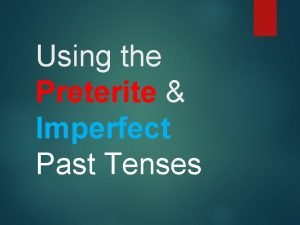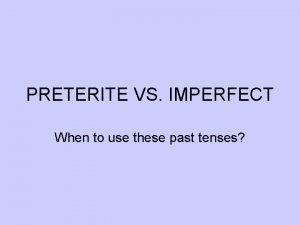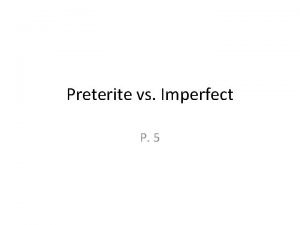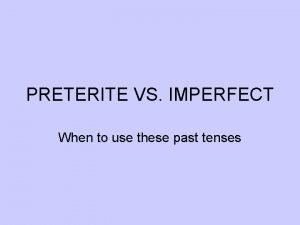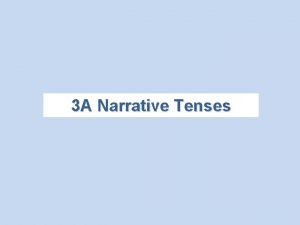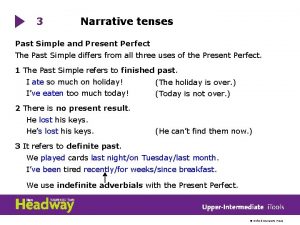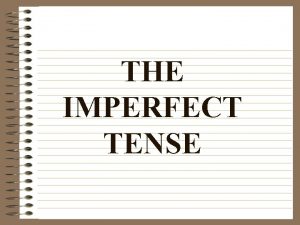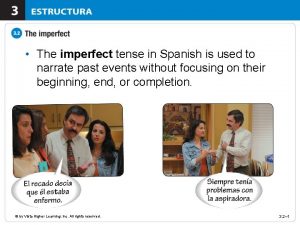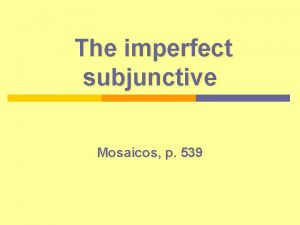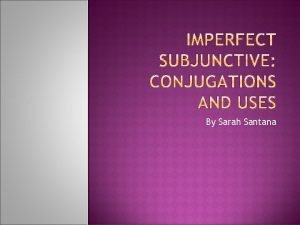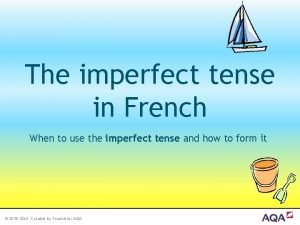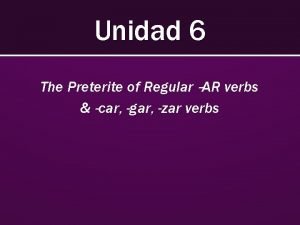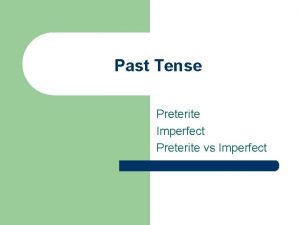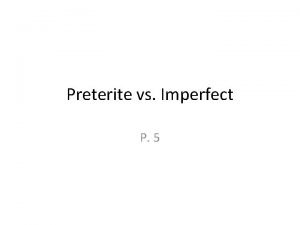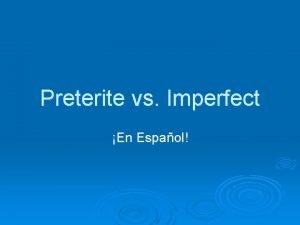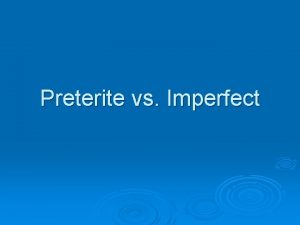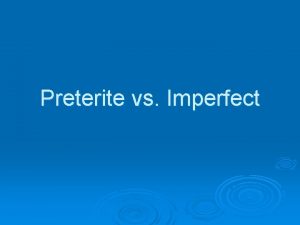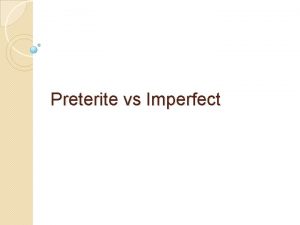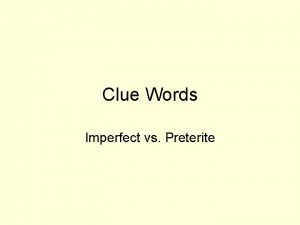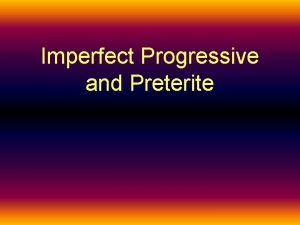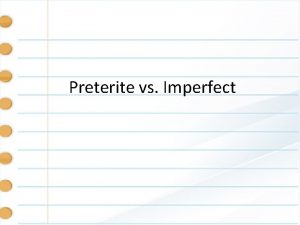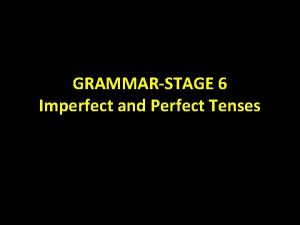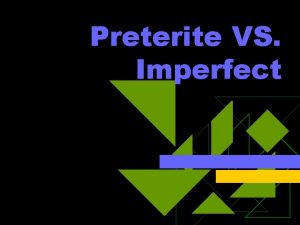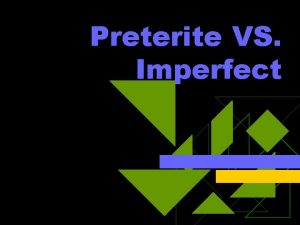Using the Preterite Imperfect Past Tenses Preterite endings















- Slides: 15

Using the Preterite & Imperfect Past Tenses

Preterite endings é amos í imos asteis isteis ó aron ió ieron Imperfect endings aba ábamos ía íamos abais íais aban ía ían

Statement: In high school, I smoked. Question: How many cigarrettes did I buy?

Preterite Past: In high school, I smoked (I tried it a couple of times but it just made me feel sick). En el colegio, fumé. Imperfect Past: In high school, I smoked (All the “cool” people did so I did too so I wouldn’t look like a dork). En el colegio, fumaba.

BOTH sentences are perfectly correct but have different connotations …so when you go to the doctor because you have a nagging cough and she asks if you smoke and you tell her:

En el colegio, fumé. She’ll say: “Take some Robitussin® and it’ll go away. ” En el colegio, fumaba. She’ll say: “We need to x-ray your lungs and look for cancer cells. ”

Uses of the Preterite Past 1. Simple, specific actions or a series of actions. ► ► Ayer yo corrí en el parque. Gabriela abrió la puerta, entró en la casa, encendió las luces y todos sus amigos gritaron “¡Feliz cumpleaños!”

Uses of the Preterite Past (continued) 2. “Interrupts” an imperfect past action. ► ► Mientras los niños dormían, Santa bajó la chimenea y les dejó los regalos debajo del árbol. Llovía cuando la mujer mató a la amante de su esposo.

Uses of the Preterite Past (continued) 3. The start/beginning of feelings and emotions (“got”). ► ► Cuando Raúl comió las almejas, él se sintió enfermo. Julia se puso furiosa cuando supo que su novio salía con Rosa.

Typical Preterite Past verbs action verbs are usually the Preterite Fui a la mezquita para rezar. ► Yo te dije que no invité a Laura. ► Javier me dio los boletos. ►. Compré el regalo perfecto para Profe. ►.

Uses of the Imperfect Past 1. Describes on-going and continuous actions, feelings, emotions, and states of being. Mientras yo cortaba el césped, mi hermano menor lavaba los platos. Mi familia vivía en Zaragoza cuando tenía 8 años.

Uses of the Imperfect Past (continued) 2. Describes habitual or repeated actions, emotions and conditions (“used to”). Cuando era niño, yo iba a la finca de mi abuela y trabajaba durante el verano. Mis hermanos siempre se acostaban a las ocho y media.

Uses of the Imperfect Past (continued) 3. The actions, feelings, and emotions and conditions “in progress” that a preterite action interrupts. ► ► Mientras los niños dormían y soñaban con Santa, él les dejó unos regalos. Cuando yo abría la puerta, la manilla se me cayó.

Uses of the Imperfect Past (continued) 4. Used for time, age & weather. ► . Eran las tres de la mañana cuando regresé a casa y descubrí que mi mamá me esperaba. ► Cuando tenían 12 años, Rocío y Paula fueron a Disneylandia. ► En diciembre y enero hacía mucho calor en Montevideo.

Typical Imperfect Past verbs emotions & state of being verbs are usually the Imperfect • Quería un perro. • Laura estaba en la biblioteca. • Pensaba en ser bombero. • Me gustaban palomitas y podía comer una bolsa completa por mí mismo. • Sara esperaba recibir un anillo de Miguel.
 Preterite and imperfect endings
Preterite and imperfect endings Preterite vs imperfect sentence examples
Preterite vs imperfect sentence examples Imperfect subjunctive
Imperfect subjunctive Imperfect
Imperfect Preterite vs imperfect
Preterite vs imperfect Imperfect and preterite
Imperfect and preterite Narrative tenses past simple
Narrative tenses past simple Narrative tenses past perfect continuous
Narrative tenses past perfect continuous Dicere conjugation
Dicere conjugation Imperfect endings
Imperfect endings Imperfect
Imperfect Pedir imperfect subjunctive
Pedir imperfect subjunctive Conjugate practicar
Conjugate practicar Caber in subjunctive
Caber in subjunctive French imperfect endings
French imperfect endings Past tense ar verbs
Past tense ar verbs
